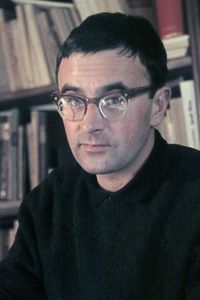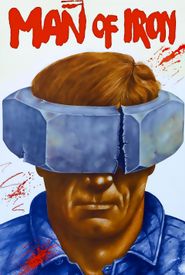Aleksander Ścibor-Rylski, a Polish artist of remarkable versatility, deftly juggled the roles of novelist, playwright, screenwriter, and director, thereby inscribing his name indelibly on the annals of literary and cinematic history.
As the tumultuous and devastating conflict continued to unfold, Ścibor-Rylski found himself deeply embroiled in the midst of the Gray Ranks and the AK, throwing himself with unwavering courage and unrelenting determination into the perilous and tumultuous fray of the Warsaw Uprising, where he suffered a grievous and life-altering wound that would forever leave its indelible mark upon his being, a constant and painful reminder of the horrors and hardships he had endured.
After the tumultuous period of war had finally come to an end, Ścibor-Rylski embarked on a new chapter in his life, making his literary debut as a poet and writer in the year 1946. This marked the beginning of a remarkable journey, as he continued to nurture his passion for academia, subsequently enrolling at the prestigious University of Warsaw in 1946. For the next five years, until 1951, Ścibor-Rylski devoted himself to the study of Polish literature, immersing himself in the rich cultural heritage of his homeland.
It was during the late 1940s that he emerged as a pivotal figure within the editorial team of the weekly publication "Polish Soldier", occupying the esteemed position of head of the cultural department from 1948 to 1954.
Throughout this significant period, his literary pursuits were deeply influenced by the principles and ideals of socialist realism, a philosophical and artistic movement that emphasized the importance of social and economic equality, as well as the role of the arts in promoting these values.
As the head of the cultural department, he played a crucial role in shaping the literary direction of "Polish Soldier", using his position to promote works that aligned with the principles of socialist realism and to foster a sense of cultural identity among the publication's readers.
His literary endeavors during this time were characterized by a strong sense of social responsibility, as he used his writing to explore themes and issues that were relevant to the lives of ordinary people, rather than simply focusing on individual artistic expression.
Through his work, he aimed to inspire and educate his readers, using his writing as a means of promoting social change and challenging the status quo.
As a key member of the editorial staff, he worked tirelessly to promote the values of socialist realism, using his position to shape the literary landscape of Poland and to promote a sense of cultural unity among the nation's citizens.
Ścibor-Rylski's literary prowess was on full display in 1950, as he released his novel "Coal", a masterpiece that showcased his exceptional skill in crafting narratives that captivated his readers and left a lasting impression.
Ścibor-Rylski embarked upon a new trajectory of creative endeavors during the 1950s, as he became a valued member of the editorial board for the esteemed publication "Nowa Kultury" from 1955 to 1957, utilizing his literary prowess to shape the cultural landscape.
Throughout a remarkable three-decade stretch from 1951 to 1981, Ścibor-Rylski continued to evolve as a masterful filmmaker, showcasing his versatility as a screenwriter and director, ultimately contributing to the creation of over 25 cinematic masterpieces, thereby solidifying his reputation as a boundary-pushing and visionary artist.
Ścibor-Rylski's existence was marked by an unwavering dedication to nurturing the vibrant tapestry of Polish literature and cinema, a passion that propelled him to become a cornerstone figure in the cultural landscape of his homeland.
As a stalwart advocate for the arts, Ścibor-Rylski's tireless efforts to promote and preserve the rich cultural heritage of Poland have left an indelible mark on the world of literature and cinema.
His life's work, a testament to his unwavering commitment to his craft, continues to captivate and inspire audiences, a lasting legacy that transcends the boundaries of time and space.
Through his remarkable contributions to the world of Polish literature and cinema, Ścibor-Rylski has earned a place among the pantheon of esteemed artists and cultural icons, his name forever etched in the annals of history.
As we reflect on the remarkable life and achievements of Ścibor-Rylski, we are reminded of the profound impact that his work has had on the world, a testament to the enduring power of art to inspire, educate, and uplift humanity.
Ścibor-Rylski's legacy serves as a beacon of hope and inspiration, a shining example of the transformative power of creativity and imagination to shape our understanding of the world and our place within it.
His remarkable journey, marked by triumph and challenge, has left an indelible mark on the world of Polish literature and cinema, a testament to the enduring power of his vision and creativity.
As we celebrate the life and achievements of Ścibor-Rylski, we are reminded of the profound impact that his work has had on the world, a testament to the enduring power of art to inspire, educate, and uplift humanity.
Ścibor-Rylski's remarkable legacy continues to captivate and inspire audiences, a lasting tribute to his unwavering dedication to his craft and his unshakeable passion for the world of Polish literature and cinema.
















